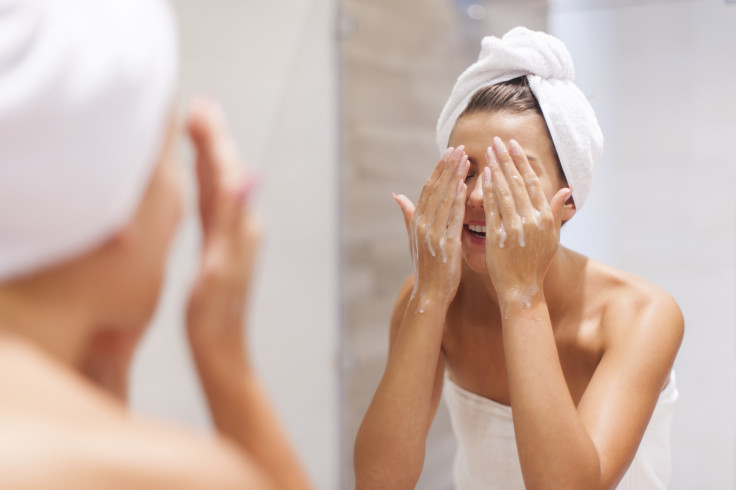
High levels of cancer-causing chemical benzene were detected in certain acne products that contain benzoyl peroxide, according to an independent lab report from Valisure.
Benzoyl Peroxide is a drug used in the treatment of mild to moderate acne and regulated by the Food and Drug Administration (FDA). The product works by reducing the amount of acne-causing bacteria and by causing the skin to dry and peel.
In a lab test evaluating 175 acne products with 99 of them containing benzoyl peroxide, researchers looked for benzene formation in them when they are stored or handled at high temperatures.
The findings indicate that benzene, a recognized human carcinogen, can be produced at levels exceeding FDA restrictions, with certain products showing concentrations over 800 times the regulated limit. These results were seen both in numerous prescription and over-the-counter benzoyl peroxide products, with native benzene detected in 94 of the tested items.
However, similar tests conducted on acne products containing salicylic acid or adapalene did not appear to have this issue.
"Results from Valisure's tests show that on-market BPO (Benzyl peroxide) products can form over 800 times the conditionally restricted FDA concentration limit of 2 parts per million (ppm) for benzene, and the current evidence suggests that this problem applies broadly to BPO products currently on the market. High levels of benzene were not only detected inside BPO products, but also in the air around incubated BPO products, showing that benzene can leak out of some product packages and pose a potential inhalation risk," a news release stated.
Benzene was detected in products including Estee Lauder's Clinique, Target's Up & Up, Reckitt Benckiser-owned Clearasil, Proactiv, PanOxyl, Walgreens' acne soap bar, and Walmart's Equate Beauty acne cream, among many others.
In response, Reckitt Benckiser said in a statement that it is confident about Clearasil's safety, "when used and stored as directed on their labels". The test findings "reflect unrealistic scenarios rather than real-world conditions," it added.
Estée Lauder, on the other hand, said that Clinique uses benzoyl peroxide in one product and "is safe for use as intended."
Meanwhile, Valisure, serving as an independent quality assurance for pharmaceuticals, has urgently called for action based on its findings. It has sent a petition to the FDA to initiate a recall and suspension of the sale of products containing benzyl peroxide.
"This discovery of benzoyl peroxide's fundamental instability and formation of benzene is substantially different than Valisure's previous findings of benzene in sunscreens, hand sanitizers and other consumer products. The benzene we found in sunscreens and other consumer products were impurities that came from contaminated ingredients; however, the benzene in benzoyl peroxide products is coming from the benzoyl peroxide itself, sometimes at hundreds of times the conditional FDA limit. This means the problem broadly affects benzoyl peroxide products, both prescription and over-the-counter, and necessitates urgent action," said Valisure's Co-Founder and President David Light.
An FDA spokesperson confirmed that the agency has received the petition and will respond to it.
"The agency acts on information provided from a variety of sources, such as that provided by Valisure, but such data must be verified as accurate and reproducible before it can be utilized to make regulatory decisions such as recommending product sale suspensions and recalls," the spokesperson said in a statement.







